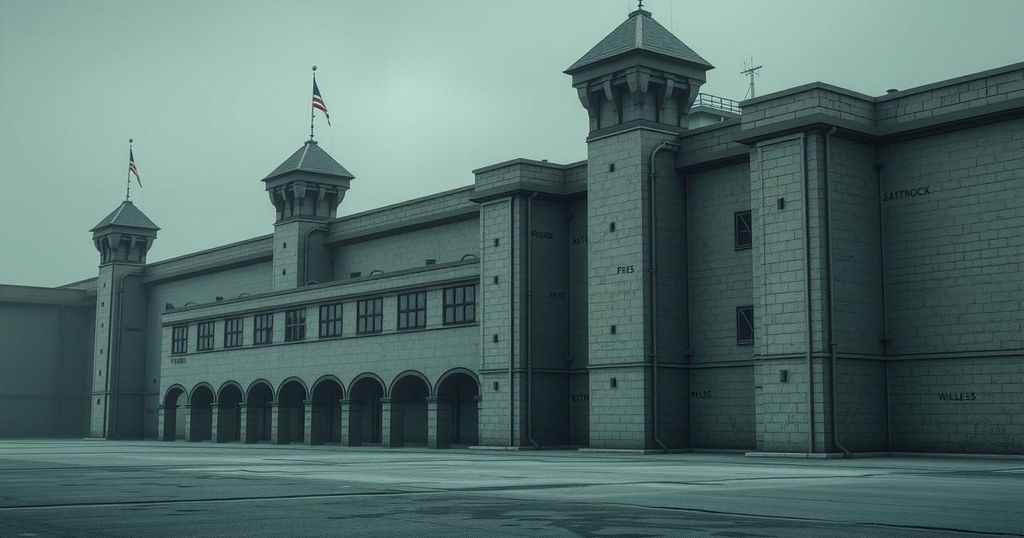DHS Secretary Noem Visits Prison in El Salvador Holding Deported Venezuelans

U.S. Secretary of Homeland Security Kristi Noem visited a high-security prison in El Salvador housing Venezuelan deportees accused of gang membership. The visit emphasized the Trump administration’s commitment to deport those it deems dangerous, amid legal and human rights concerns regarding the detainees’ treatment and allegations. The prison environment poses severe restrictions on inmates while ongoing legal challenges thwart further deportations.
On Wednesday, U.S. Homeland Security Secretary Kristi Noem toured a high-security prison in El Salvador holding Venezuelans deported by the Trump administration, accused of being gang members. Her visit included a walkthrough of crowded cell blocks, an armory, and a solitary confinement area, emphasizing the administration’s stance of deporting what they term the “worst of the worst.” Noem’s tour coincided with ongoing federal court arguments regarding the legality of these deportations amid allegations of human rights abuses at the facility.
The prison, known as the Terrorism Confinement Center, has no recreational access for inmates who are crammed into cells without opportunities for release. During her visit, Noem plans discussions with President Nayib Bukele regarding increasing deportation flights and removing violent criminals from the United States. This initiative aligns with her role in showcasing the government’s efforts to enforce stricter immigration laws.
Deportations of Venezuelans occurred this month following the invocation of the Alien Enemies Act, allowing quick removal of noncitizens without judicial review. Notably, a recent appeals court ruling prevented further deportations under this act, raising concerns about the detainees’ indefinite confinement without trial. Despite the administration’s claims about the gang affiliations of the deported individuals, many families categorically deny such allegations, while legal representation contends that many do not have criminal records.
The prison, which can accommodate up to 40,000 inmates, has restrictive policies preventing inmate communication with the outside world. No visitors, workshops, or educational programs are available, and reports indicate that the conditions are founded on a harsh crackdown on alleged gang activity. Bukele’s government has linked the opening of the prison to his ongoing battle against crime in the country.
Under a suspended state of emergency, El Salvador has seen considerable arrests based on suspected gang ties. Bukele welcomed the U.S. deportees, asserting a commitment to his stringent immigration policies. During her tour, Noem observed other cells and was informed by Justice Minister Gustavo Villatoro that some inmates had been detained since the prison’s inception, discrediting hopes for reintegration into society.
The visit and policies reflect a broader effort by the Trump administration to reshape immigration enforcement, while raising critical human rights and legal concerns regarding the treatment and status of deported individuals in El Salvador.
Secretary Noem’s tour of the Salvadoran prison highlights ongoing U.S. immigration policy tensions, focusing on the detention of deported Venezuelans under contentious circumstances. Legal challenges surrounding these deportations notably question the adherence to human rights standards. As discussions about increasing deportation efforts continue, the fate of those incarcerated raises significant dilemmas about their rights and the transparency of their allegations.
Original Source: www.pbs.org







